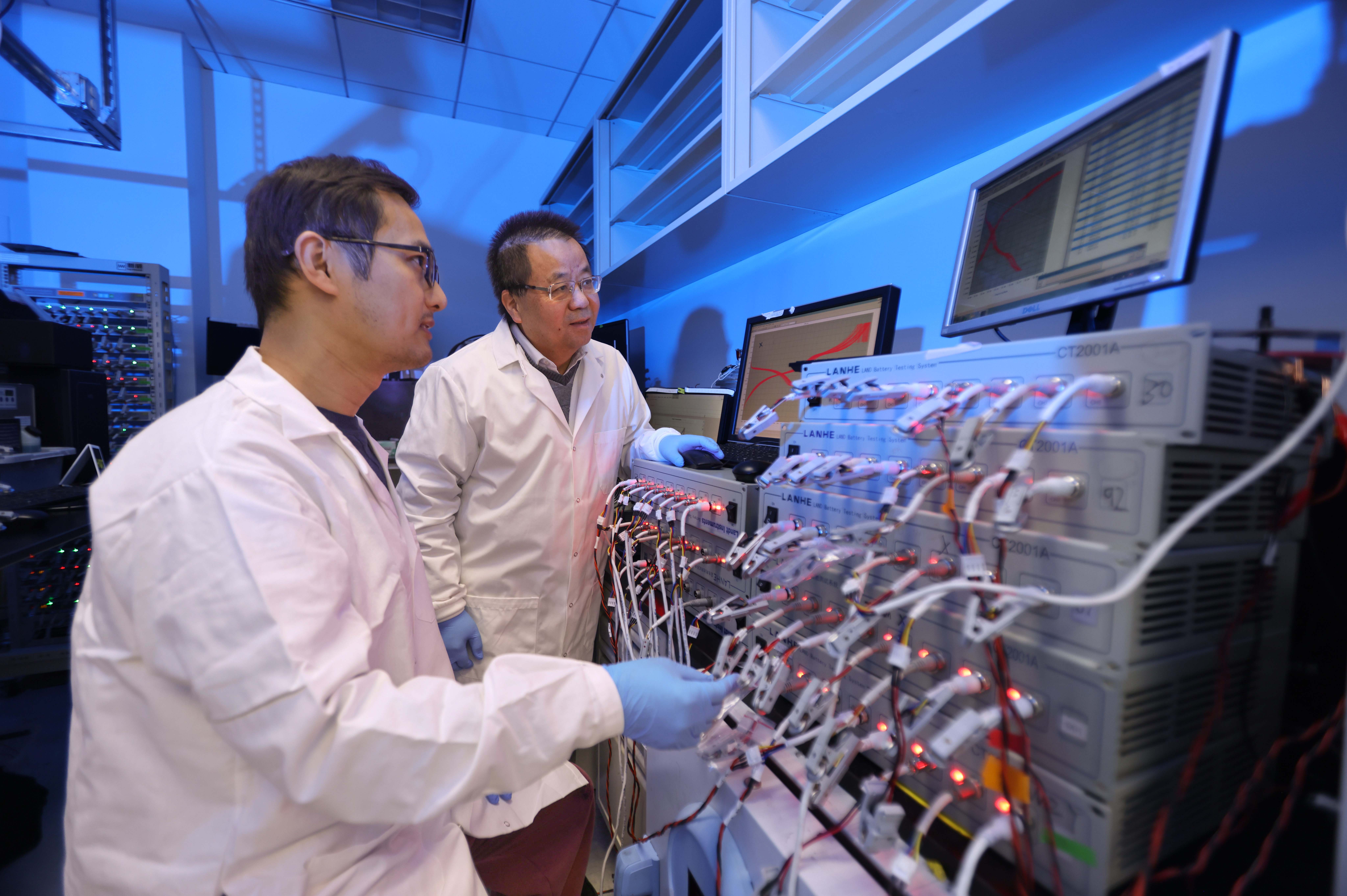Next-Generation Batteries Could Come with Lower Production Costs, Less Environmental Impact
Researchers aiming to commercialize highly energic batteries for electric vehicles developed a new technology that involves cost-efficient manufacturing processes and a reduced environmental impact. Ongoing efforts to undercut the reliance on hydrocarbon fuels unfolded a new technology by Professor Chunsheng Wang in the Department of Chemical and Biomolecular Engineering (CHBE). His latest invention, published today in Nature Chemistry, involves a high-energy lithium metal battery that deals with fewer manufacturing resources and a reduced environmental impact. His invention seeks to replace conventional lithium-ion batteries with developing technologies that boast higher energy capabilities: enhancing consumer electronics as well as potentially enabling long-distance transportation. What stands in the way of lithium-metal battery commercialization lies in its key component, the electrolyte, which cannot stabilize the highly energetic system, causing it to fail. Seeking to resolve this challenge, Wang’s research team designed a new electrolyte that enables the successful operation of lithium-metal batteries with cost-effective components that are also less harmful to the environment. They accomplished this design without incorporating fluorinated solvents, largely employed chemicals in today’s batteries that sometimes release toxic gases, which pose a threat to both human health and the environment. Their work enabled a recyclable technology that requires simpler and fewer manufacturing processes associated with fluorinated solvents, which allows for widespread adoption while removing some environmental concerns. “We needed to think about the potential hazards of fluorinated solvents used in electrolytes, like freon. This work suggests that an eco-friendly approach might be in front of us to enable the practical applications of lithium-metal batteries,” said Department of Chemistry and Biochemistry Postdoctoral Associate Ai-Min Li, who is the first author of the study. Moving forward, the research team aims to patent their invention and commercialize it via Wang’s venture, WH-Power, a battery manufacturing company that he co-founded with Associate Dean of Research Robert Briber and Distinguished University Professor Liangbing Hu. This work is a collaborative effort with the Department of Energy’s Battery500 Consortium, an initiative involving a group of institutions and national laboratories that aim to boost the energy capabilities and cost efficiency of current lithium batteries.
Related Articles: April 3, 2024 Prev Next |


